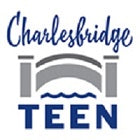Forever Cousins

Laurel Goodluck, author
Laurel Goodluck writes picture books with modern Native themes. Raised in the San Francisco Bay Area, Laurel comes from an intertribal family and is an enrolled Mandan Hidatsa Arikara Nation and Tsimshian tribal member. Laurel has degrees in psychology and community counseling and family studies. She lives in Albuquerque, NM, where she and her husband raised two children.
Read more about Laurel.
Jonathan Nelson, illustrator
Jonathan Nelson is a Navajo graphic designer, graphic artist, and illustrator. He is Kiiyaa'áanii (Towering House Clan) and Naakai Dine'é (Mexican Clan). Jonathan designs and creates art and illustrations with paints, pixels, and ballpoint pens. He lives outside Denver, Colorado, with his family.
Read more about Jonathan.
- A Charlotte Huck Award Honor Book
- An American Indian Youth Literature Award winner
Kirkus Reviews
Two Native American cousins find their friendship tested when one moves from the city to the Rez.
Amanda loves purple, while Kara’s favorite is pink, but “they agree that sunflowers are beautiful, powwow dancing is fun, and chokecherry jam on toast is the best.” When the time comes for Kara’s family to leave, both girls’ parents assure them that the family will be together again next summer at the reunion. A year passes, and the cousins miss each other very much but keep in touch by phone and through letters. When it’s time for the reunion on the reservation, the families make preparations: Amanda’s family packs and gets the GPS set for the two-day drive; Kara’s family makes welcoming signs, and her dad hangs a picture of the family tree. But the girls are nervous: Will they still be friends? In an author’s note, Goodluck explains that in the past, many Native families have faced separations; she cites the Indian Relocation Act of 1956 as one cause. Nevertheless, she emphasizes that they still maintain close relationships due to shared family and tribal values. This matter-of-fact yet poignant story brings that bond to vivid life as the girls realize that no matter what, they are “forever cousins.” The illustrations rely on a muted palette, featuring appealing characters with large heads. Cultural references are scattered throughout, like the dolls made by the girls’ magúu (grandmother), powwow dancing, and a Hidatsa naming ceremony. Children facing separations of their own will find this reassuring.
A sweet story of friendship, family, and community.
The Bulletin of the Center for Children's Books
Cousins and best pals Kara and Amanda share plenty—their love of powwows, their affection for their maguu, and their taste for chokecherry jam. Unfortunately, they’ll no longer share the Rez when Kara and her family move to the city. Despite reassurances from their parents that they’ll see each other, both girls know it’s going to be tough going; there’s only so long video chatting and postcards can sustain a friendship. The school year passes and the two cousins keep in touch, but when summer comes and the two families reunite, will they still know each other as well as they did before? The story is a familiar one, but Goodluck, who has an intertribal background of Mandan, Hidatsa, and Tsimshian, weaves in cultural details that bring a cheerful freshness and situate the cousins fully within both their family and their Native experience. While more specificity of tribal identity would have been welcome, the book offers important but subtle visual cues, from family members powwow dancing in the background to the fry bread at various get-togethers to dolls made by their maguu, the Hidatsa term for grandmother. The figures themselves are oddly disproportionate, but the larger heads serve to focus the expressions and clearly convey the girls’ emotions, while full spreads alternate with close-ups on the girls’ activities to bring movement. An author’s note details her inspiration from her childhood experiences, as well as an explanation of dual citizenship; an illustrator’s note discusses his family’s experience with the Indian Relocation Act of 1956.
Children's Literature
Kara and Amanda are best friends as well as cousins. They enjoy doing everything together! But when Kara and her family move to the city, the cousins worry their close relationship won’t survive. The girls stay connected by talking on the phone often, sharing what’s going on in their lives. A year goes by, and Amanda and her family travel from the Reservation they live on to the city for a visit. Kara and Amanda are initially nervous and shy about seeing each other again, as each girl wonders whether the other will be happy to see them. At first, things feel awkward because so much time has passed, but soon enough they become comfortable again and express how much they missed each other. When the time comes for Amanda to leave, the girls trade dolls so they can have a piece of each other when they are apart. No matter how much time or distance separates them, Kara and Amanda are forever cousins. Goodluck teaches children about the struggles many families endured after the 1950s Indian Relocation Act was passed. Throughout the story, readers are introduced to various aspects of Native American culture through the use of the Hidatsa word “magúu” (meaning “grandma”), slang such as “The Rez” (short for “Reservation,” meaning tribal lands), and including text about a young child getting his Hidatsa name. Overall, this is a heartwarming and culturally inclusive story that celebrates the love between cousins.
Hardcover
ISBN: 978-1-62354-292-4
E-book
ISBN: 978-1-63289-926-2
Ages: 4-7
Page count: 32
8 x 10





